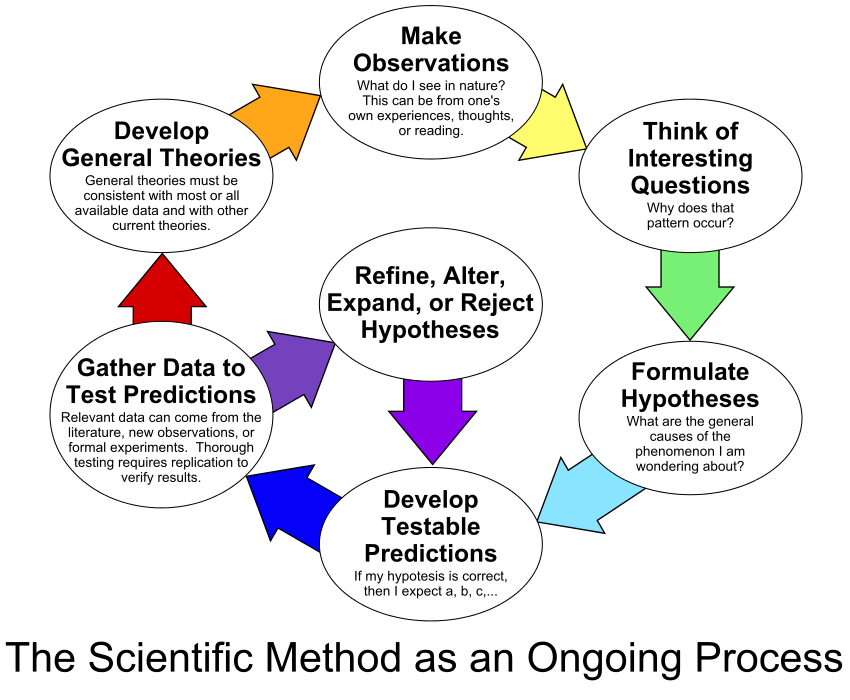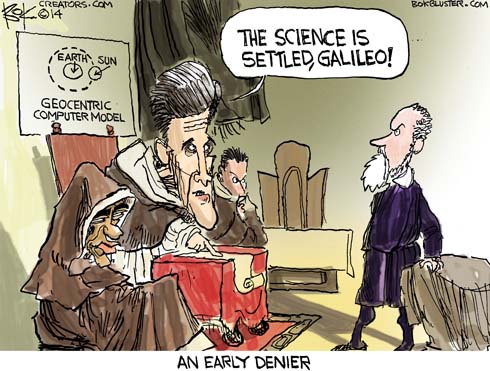About consensus, "97%", and settled science

10/22/2019 21:47 - Posted by Tom van Leeuwen
There are four misconceptions about science that are commonly used by catastrophic man-made warming advocates. Normally, when you try to start a conversation on the subject, their first reply will be one of these four "arguments".
1.- "The science is settled"
When you hear someone say that the science is settled, you can be sure you're not talking to a scientist.
Science is never settled. Even the most advanced discoveries and theories are
always open to discussion and improvements. The scientific method is an ongoing process of formulating hypothesis, carrying out replicable experiments and rejecting failed hypothesis.
In fact, once the "settled" science was that the Earth moved around the Sun and that bleedings could cure all diseases. Enough said.
2.- "There is a scientific consensus"
When you hear someone claim there is a scientific consensus, you can be sure you're not talking to a scientist.
Science is never about consensus and a consensus is never science.
Consensus is politics, not science.
3.- "So, you disagree with..."
This one can have various forms: "You disagree with all scientists", "You disagree with the IPCC", "You're a denier (i.e. you disagree with the truth)".
And of course! You're free to disagree with whoever you want! So, your first answer can be, "yes, I'm proud to disagree." Don't feel shy to say exactly that. After all, you have the science on your side.
There are lots of renowned physicists and other climate-related scientists who disagree with the CO2-hypothesis, so you're in good company.
The scientists who defend the CO
2 warming hypothesis run videos like these ones:
- Professor David Archer starts off explaining why CO2 can not cause catastrophic global warming but then he states the exact opposite and contradicts himself about the transparency of the panes of glass in his model
- Professor of Astronomy Michael Merrifield explains a model that, when taken to the limit, predicts that adding more CO2 will cool the planet.
And those are the models that support the CO
2-hypothesis. The whole CO
2-hypothesis is based on the idea that the warming properties of CO
2 are unlimited and that's why it has never been formally proven.
That assumption is defied by all empirical data. It simply doesn't happen in the real world.
On the other hand, we have lots of
arguments, considerations, and proofs based on empirical real-word data, that
CO2 does not warm the Earth.
So... Yes! You can be proud to disagree with the CO
2 warming hypothesis.

4.- "97% of scientists agree"
This is a myth, popularized by the "Nobel laureates" Al Gore and Barack Obama.
Of course, they never asked all scientists for their opinion on this subject. The myth is based on various ill-performed literature researches. The most famous one of them,
Cook at al., made the terrible mistake to combine scientist who think that human activity has
some effect on the climate with scientists who think humans are the
primary cause for the warming.
After that group is split up, only
less than 2% of the scientists endorsed the statement that humans are the primary cause of the warming.
The scientific method
In the scientific method as depicted above, the CO
2 warming hypothesis has stranded between the phases "Develop Testable Predictions" and "Gather data from formal experiments". The models based on the hypothesis are unable to predict future warming and there are no formal replicable experiments that support it.
This means that the CO
2 hypothesis can not be used to develop a general theory and should be avoided in any political process or decisionmaking.
I want to conclude with this quote from
David Wojick:
The elegant thing about science, at least in principle, is that a single observation can falsify a popular hypothesis. But as Thomas Kuhn pointed out in his groundbreaking book — The Structure of Scientific Revolutions– this may not be true in practice when the hypothesis is deeply entrenched, due to what I call paradigm protection. The community of believers will resist what observation clearly says. So we get the argument that the data must be wrong. However, the satellite data is accurate enough to falsify AGW.
Tom van Leeuwen, October 2019.

